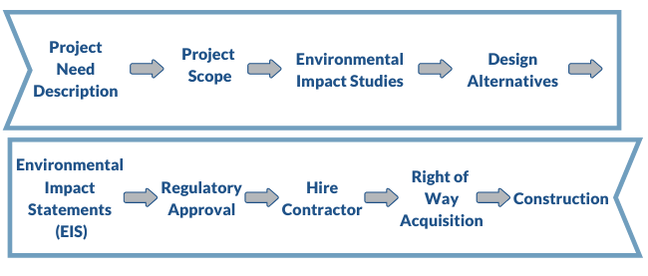|
Answers to common questions we get from our clients.
The attorneys of Lewis Babcock in Columbia, South Carolina welcome questions from prospective clients related to our practice areas. Here are some of the basic questions we hear frequently, together with brief answers to help you as you consider taking legal action. For advice on your particular case, please contact our firm directly Class ActionHOW DO I DECIDE WHETHER TO REMAIN IN THE CLASS OR OPT OUT AND FILE MY OWN LAWSUIT?
The decision usually rests on two factors: the size of your claim and your willingness to litigate it yourself. If you have been harmed only to a small extent, it will usually make sense to join with others and litigate the claim as a class action. So if your bank has illegally charged you overdraft fees in $35 sums, you will want to join the perhaps thousands of other customers it has done this to in a class action. On the other hand, if you have suffered serious injury as a result of a defective braking system in your automobile, you may want to litigate this separately even though the braking system defect affects thousands of cars. Individual litigation means you must be willing to endure the hassle of trial. These are general guidelines, and your decision should be made in consultation with an experienced attorney. To learn more about these types of cases, see Steps To Take in a Class Action Lawsuit. EMINENT Domain/CondemnationI’ve been notified that the government intends to take my property, or a portion of my property, now what?
The power of eminent domain permits the government to take your property for use in a public project, but it must pay you for it. You are entitled to receive the fair market value of the property the government takes, which includes the value of the land physically taken and any damages inflicted on your remaining land. Fair market value also considers the highest and best use of your property, which could be different from its current use. The government must make you a fair market value offer. The government’s offer should be accompanied by a valuation prepared by a licensed appraiser. You have the right to disagree with the valuation and negotiate with the government. South Carolina has a statutory process in place under which the government must operate when it decides to take your property. Contact us today to learn more. Where can I learn more about the project affecting my property?
Most public projects have public information and public involvement components. The governmental body or its agents will typically provide project information to the public and invite attendance at public meetings and the submissions of questions, comments, or concerns. Certain sources of project funding, such as federal, or certain regulatory approval bodies may also mandate certain aspects of public information and involvement. Generally, a web search for the project name is a good place to begin your search. Public bodies often provide online access to the project’s status, maps, public comments, and other project related information. If your search does not return any results, contact a representative of the public body that is undertaking the project. Helpful links: South Carolina Department of Transportation – Current Projects Carolina Crossroads Charleston County Transportation Department Greenville County Public Works Richland County Transportation Penny Department The government called to tell me it’s taking my land and is coming soon to inspect and survey the property, can it do that?
After first giving reasonable notice to the landowner, the government may enter the property that it purposes to acquire for the limited purposes of making a survey, evaluating the location of proposed improvements, or appraising the property. A court order may be obtained where the landowner refuses to allow entry. I was told that if I don’t reach an agreement with the government on the value of my land, the government will have to file a condemnation action in court to take my property, is this true?
That is correct, but it is not a reason to accept less than fair market value for your property. When the landowner and the government do not agree on the value of land being taken or damages to the remaining land, the government is permitted to file a condemnation action in court to exercise its power of eminent domain and acquire the property. This does not change landowner’s right to receive the land’s fair market value. The landowner and the government can still reach an agreement at any time after the condemnation action is filed in court. The government must give you at least 30 days to accept or reject their offer of compensation before filing a court action. If the government has initiated a condemnation action in court to take your property, don’t wait to talk to us about how we may be able to help. Does the government have to provide me with an appraisal before taking my land?
Before the government files a condemnation action in court to take your property, it must provide you with an appraisal and make a good faith effort to negotiate the amount of compensation. However, the government and landowner can agree on the amount of compensation for the land at any time, and in certain circumstances the government may make an offer of compensation without first ordering an appraisal. Before the government files a court action to take your property it must provide you with an appraisal. The government made me an offer for my land, do I have to accept it?
No. You are entitled to receive the fair market value for your property. The United States Constitution and the South Carolina Constitution call this “just compensation.” There can be, and often are, differences in opinion on the fair market value of land. The landowner is always entitled to its own opinion of fair market value and does not have to agree with the government’s valuation. What is just or full compensation?
Just compensation is the fair market value of the property being taken, plus any decrease in value of the landowner’s remaining property, less any benefits to the landowner’s remaining land due to the public project. The Fifth Amendment of the U.S. Constitution provides that private property may not be taken for a public use without payment of just compensation. The items for which a property owner may generally attempt to seek full compensation are real property, fixtures and equipment, moving costs, severance damages, interest, attorneys’ fees and costs of expert witnesses. Full compensation for these items is generally the fair market value of the item as of a particular date. Landowners or tenants may also be entitled to recover costs associated with relocating a business and moving personal property. Contact us for info about the factors that affect fair market value. I’ve received an offer to acquire my property, how do I know if it is fair?
As a landowner, you have the right to testify to your opinion of the fair market value of your property. Normally, the best way to evaluate your own valuation and the government’s initial offer, is to hire a licensed real estate appraiser that is experienced in appraising property for eminent domain matters. The eminent domain appraisal is, in most instances, different from the traditional appraisal that you may have obtained to secure bank financing to purchase your property. The eminent domain appraisal must consider the highest and best use of your property and any damages to your remaining land due to the taking. We can help you select the right appraiser to ensure you receive the fair value for your property. CAN I CHALLENGE THE AMOUNT OF MONEY THE GOVERNMENT IS WILLING TO PAY FOR MY CONDEMNED PROPERTY?
Yes. You are entitled to full compensation for any taking. Therefore, you are entitled to challenge the government if you feel their initial offer was not appropriate. My mortgage has a prepayment penalty, am I stuck paying that fee after the government takes my property?
No. Generally, your lender may not impose a prepayment penalty on debt paid off as part of a condemnation action. Where a penalty is required, it is generally the government’s responsibility to pay. The government has filed a condemnation action against me, now what?
Generally, condemnation actions proceed like any other civil litigation matter. This means that there will be a period of discovery, which is an exchange of information typically through interrogatories (written questions) and requests to produce documents relevant to the property. The parties will also likely take depositions (sworn testimony taken outside of court), typically of the landowner, the government representatives, and any appraisers or other expert witnesses. Prior to trial, the parties will engage in mediation. Lewis Babcock has experience walking clients through each of these stages of litigation. Contact us today. If the government files a condemnation action, am I able to access the offer of just compensation deposited with the court before the conclusion of the court case?
Yes. A landowner is statutorily entitled to withdraw at least 50% of the amount the government determined to be just compensation and deposited with the court. For projects with certain types of funding, such as federal funds, a landowner may be entitled to withdraw 100% of the funds the government deposited. If the ultimate determination of compensation is less than the landowner withdrew, the landowner would be responsible to pay funds back to the government. Withdrawing the funds on deposit with the court does not prevent the landowner of seeking more compensation. Do I have the right to demand that a jury hear my case?
Yes. A condemnation case is tried before a jury unless the landowner and government both agree to waive a jury trial. If a condemnation action is filed in court, am I entitled to receive interest on the amount ultimately determined to be just compensation?
Yes. The government is required by statute to pay 8% a year on the amount ultimately determined to be just compensation. The total amount could vary depending on whether the funds deposited by the government were withdrawn by the landowner during the condemnation action. When a condemnation action is filed, what is the date of valuation for my property?
In a condemnation action, the landowner’s property is valued as of the filing date of the condemnation. Even though a court action may take months, or years, to conclude, the valuation date remains fixed as the original court filing date. Can I challenge the government’s right to take my property?
Yes, in very limited circumstances the landowner may initiate a right-to-take challenge. A landowner can challenge the government’s right to take their property by initiating a separate legal action within thirty days of being served with the condemnation notice. This type of action may challenge the public use of the property and public benefit of the project. A right-to-take challenge automatically stays the condemnation action until its resolution. If the right-to-take challenge was not raised and litigated in good faith, the court must award the government its reasonable costs and litigation expenses. IF I AM SUCCESSFUL IN CHALLENGING THE GOVERNMENT’S EFFORTS TO TAKE MY PROPERTY, WILL I BE RESPONSIBLE FOR MY OWN ATTORNEYS’ FEES AND COSTS?
Where a property owner successfully challenges the government’s right to take his or her property by eminent domain/condemnation, the law provides that the eminent domain/condemnation proceeding may be dismissed. The property owner generally is then entitled to recover his or her litigation expenses including attorneys’ fees and reasonable costs incurred in the eminent domain/condemnation action. Legal MalpracticeMY LAWYER IS NOT WORKING WITH ME, NOT EVEN RETURNING PHONE CALLS. WHAT CAN I DO?
A lawyer not communicating is the most often-cited complaint being made to state bar associations. Sometimes the failure to communicate is not a true indication of the level of time or work an attorney is actually doing on a case, but is symptomatic of poor organizational skills. Send your attorney a note letting him or her know that you have been trying to reach the office and speak with him or her, and would greatly appreciate a return call as well as a written update and specific responses to your questions. The letter creates a paper trail of communication with your attorney. The longer the attorney is unresponsive, especially after sending him or her a letter, the stronger a case for malpractice may be. What is legal malpractice?
The term malpractice means that a professional has performed services below the expected standard of performance for their industry. Many people have heard the term used in the context of a medical malpractice lawsuit brought against a medical provider. Just like medical providers, lawyers are expected to perform up to a certain level of professional standards. When a lawyer performs below these standards and causes injury to a client, the lawyer committed legal malpractice. Similar to other malpractice lawsuits, an injured client may seek the recovery of damages caused by the attorney’s conduct. Who can sue an attorney for legal malpractice?
One of the requirements for bringing a legal malpractice lawsuit is the existence of an attorney-client relationship. A written fee agreement identifying the client and setting forth the scope of representation is often the best evidence of an attorney-client relationship. However, because written fee agreements are generally only required by the South Carolina Rules of Professional Conduct where the lawyer’s fee is based on contingency, it is not unusual for there to be no written fee agreement between a client and their lawyer. Where there is no written fee agreement, facts about how the lawyer became involved, the substance of communications with the lawyer, what persons interacted with the lawyer, what actions the lawyer took on the client’s behalf, and who paid the lawyer’s fees, may all factor into this analysis. This question often becomes more complicated in the context of multi-party transactions and for closely-held businesses where the distinction between the legal entity and individual owners is often blurred. Our firm has experience guiding clients through this analysis. How do I know if I might have a malpractice case against my attorney?
Every legal malpractice case is unique and there is no one-size-fits-all answer to this question. In South Carolina, when filing a legal malpractice lawsuit, the plaintiff-client must include an affidavit from a legal industry expert expressing the opinion that the lawyer’s conduct fell below the standard for the legal industry. Prior to reaching the point of hiring an expert, there are questions common to every legal malpractice action that can help you evaluate your case and prepare you to speak with an attorney. What actions did my attorney take, or fail take, that were wrong? Begin to articulate what actions your attorney took, or failed to take, that you believe were wrong. Often, a client may have only a general sense of something amiss and the answer to this question will formulate as you consult with your attorney and legal industry expert. The more specific you can be at the outset, the more accurately your case can be evaluated. What damages did I suffer as a result of my attorney’s conduct? One prerequisite for a successful legal malpractice is damages. What damage or loss did you suffer as a result of your attorney’s conduct? Did you incur certain unexpected costs? Did you miss out on a business opportunity? Did you make a decision based on your attorney’s advice that resulted in financial harm to you or your business? Did you lose a lawsuit that you otherwise should have won? Are you able to quantify your losses at this point? How did my attorney’s wrongful actions, or failures to act, lead to my injury? In every legal malpractice action, the plaintiff-client must be able to demonstrate a causal connection between the attorney’s wrongful conduct and the injuries suffered by the client. In other words, the attorney’s conduct must be the legal cause of the injury. Sometimes this question can be thought of in terms of “But for my attorney doing X, this bad thing would not have happened because of reasons 1, 2, and 3.” Or, “If my attorney had done Y, this bad thing would not have happened because of reasons 1, 2, and 3.” Causation can also be thought of in terms of proximity, or closeness. How closely related to my injuries was the attorney’s wrongful conduct. For example, if your attorney negligently omitted an early-termination fee in your tenant’s lease and your tenant vacates the premises without cause, the attorney’s omission may be closely related to your inability to collect a lease breakage fee from the tenant. However, in the same scenario, if your tenant vacates the premises because you failed to provide sufficient parking as required in the lease, then your inability to collect a lease breakage fee may not be as directly related to your attorney’s omission because of your own failure to provide parking. Causation is typically one of the more difficult aspects of a legal malpractice case to evaluate. We are here to help. My lawsuit is ongoing, does this affect when I can bring a malpractice case against my attorney?
Legal malpractice cases often arise from attorney conduct in a prior litigation. When that litigation remains ongoing, in a trial court or on appeal, it may be too early to pursue a legal malpractice claim. Generally, a claim for legal malpractice arising out of an underlying lawsuit that is on appeal must wait for the conclusion of the appeal. In certain circumstances, it may make sense to obtain an agreement placing the statute of limitations on hold (tolling agreement) prior to the conclusion of your underlying case. Every client’s case is different, so it is important to consult with an attorney as soon as you believe you might have a claim for legal malpractice. How long do I have to bring my claim for legal malpractice?
South Carolina has a three-year statute of limitations for legal malpractice cases. However, South Carolina also recognizes the discovery rule, under which the statute of limitations does not begin until a client knows or by the exercise of reasonable diligence should know that they had a claim for legal malpractice. Every client’s case is different, so it is important to consult with an attorney as soon as you believe you might have a claim for legal malpractice. If my attorney breached the rules of professional conduct, does that mean they committed legal malpractice?
Not necessarily. While the South Carolina Rules of Professional Conduct govern the legal profession and can result in disciplinary actions, a breach of professional conduct does not necessarily mean that an attorney has committed malpractice. However, the Rules of Professional Conduct are relevant to establishing the standard of care and attorney’s legal duty to a client. What damages can I recover in a malpractice action against my attorney?
Recoverable damages are those caused by the attorney’s negligence. Clients can recover actual damages and, under certain circumstances, punitive damages. Damages for emotional distress or mental anguish are normally not recoverable. In the case of errors made by an attorney in an underlying litigation, damages may equate to what would have been due to the plaintiff-client had the underlying litigation been successful. Where an attorney made errors in drafting documents, damages may be established through expert testimony explaining how the errors financially impacted the client. In a conflict of interest case, it may be appropriate to return the fees paid by the client to the attorney, known as disgorgement. Can a beneficiary bring a legal malpractice action against the attorney who drafted the will?
In the will/estate planning context, beneficiaries are sometimes permitted to bring lawsuits against the attorney that drafted the will or estate planning documents even though there were not the client. This will depend on the facts of each particular case. I believe my attorney overcharged me for their services, what can I do?
The South Carolina Bar has established a Fee Disputes Board to resolve fee disputes between clients and attorneys. Information about this process can be located on the South Carolina Bar’s website. The fee dispute process is designed so that clients can bring their claim on their own and do not need to hire another attorney. There is a cap on the amount of legal fees that can be recovered through the fee dispute process. In certain circumstances, it may be advantageous to hire an attorney to manage your fee dispute process. Contact us to learn more about how we can help. I’ve been convicted of a criminal offense or pled guilty, can I sue my attorney?
In South Carolina, the general rule is that innocence is required to succeed in a legal malpractice action arising out of a criminal conviction. A no contest plea is a bar to a legal malpractice action. |
About |
|
|
|
© COPYRIGHT 2023 LEWIS BABCOCK L.L.P. ALL RIGHTS RESERVED.








